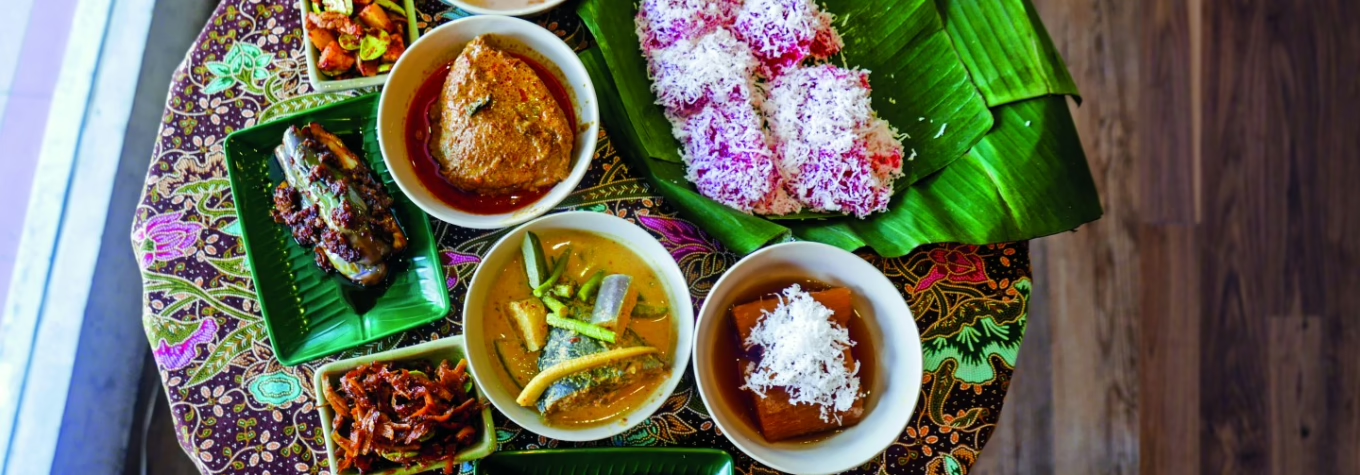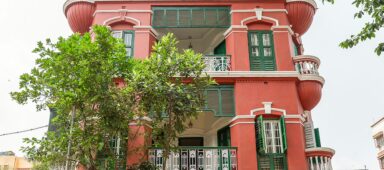Two women bring the exuberance of rural Malaysian cooking to Kuala Lumpur’s suburbs
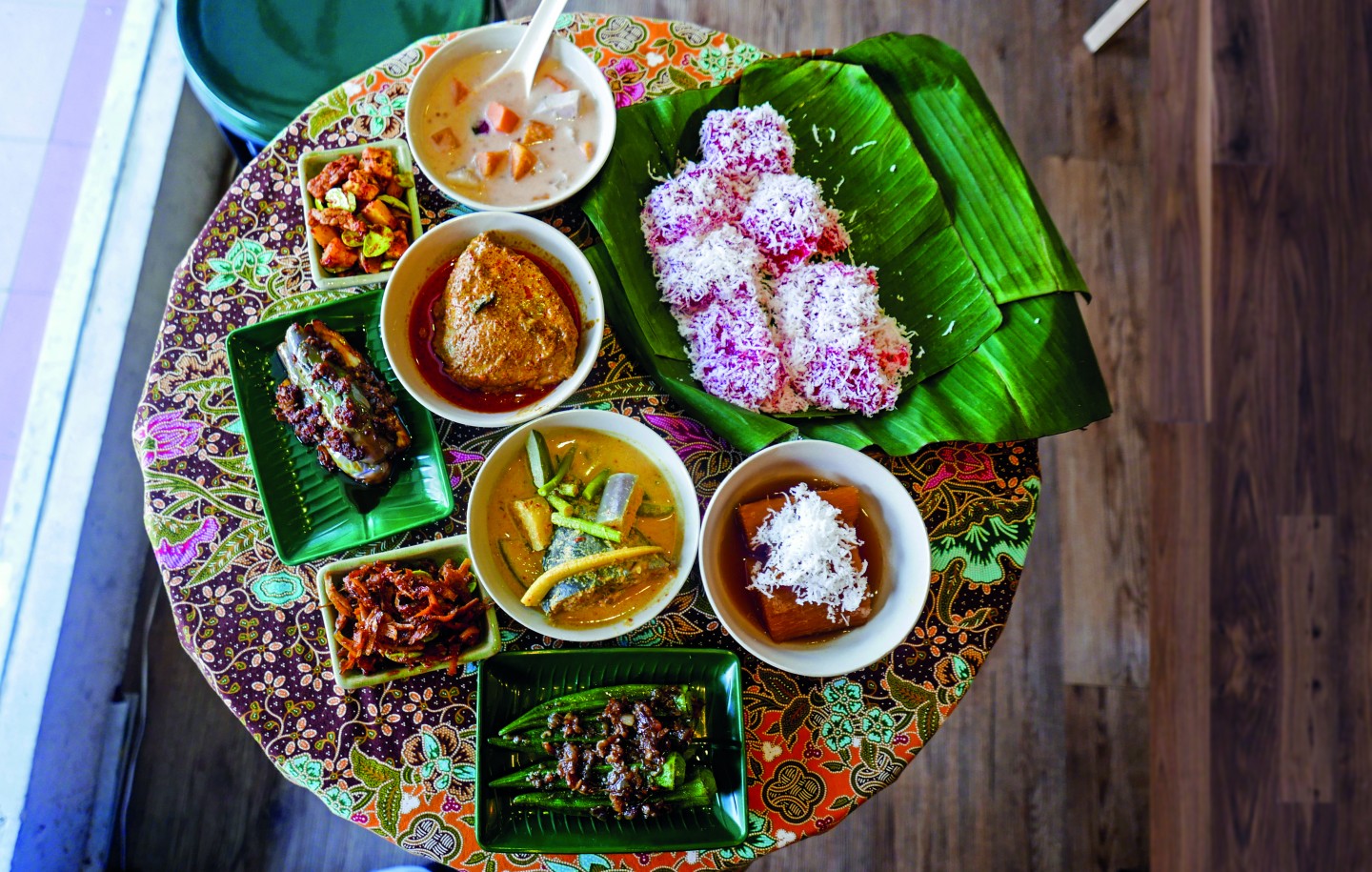
It was one meal that changed these two women’s lives.
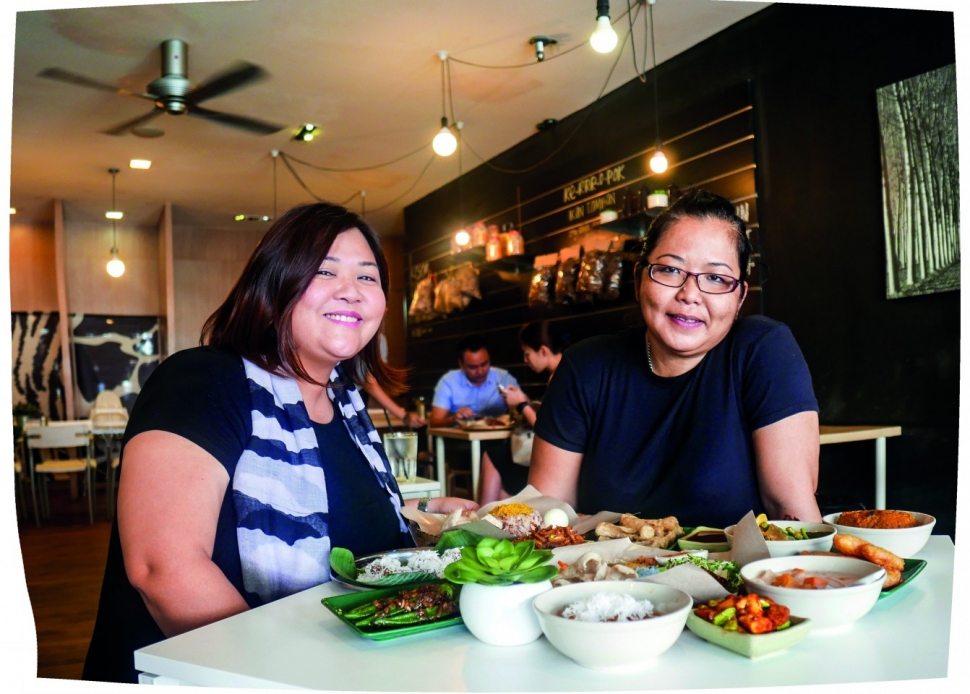
Susan Lim was working as a manager at Blook, a Malaysian fashion retailer, when she returned to her eastern home state of Kelantan for a break. There, she decided to prepare nasi kerabu – an elaborate Kelantanese rice dish – to bring back to Kuala Lumpur for an office party. Her boss, Blook founder Edana Lim Parina, sampled it and was incredibly impressed.
“It was my first taste of authentic nasi kerabu,” Edana recalls. “It was the best. I never forgot it.”
The experience eventually encouraged Edana and Susan to open Kesom, a café that specialises in kampung (village) flavours, with a focus on the food of peninsular Malaysia’s east coast. Over the past two years, Kesom has become the Klang Valley’s most reliable destination for Kelantanese cuisine, thanks to its founders’ painstaking dedication to preserving culinary traditions.
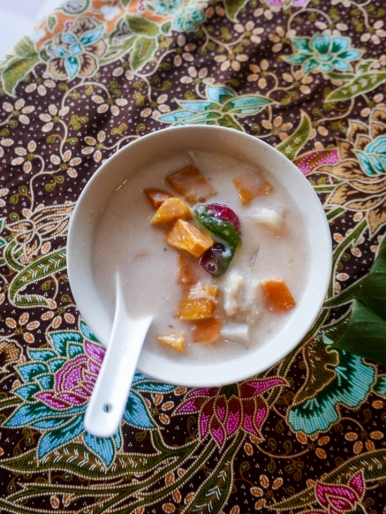
Kesom, located in the Aman Suria residential neighbourhood, is one of the rare contemporary venues that succeeds in conveying the complex flavours of Kelantan to an urban market. This is no easy feat, since it involves recognising where to find the finest herbs and spices for Kelantanese fare and mastering the time-honoured techniques of making everything from scratch.
“This has been my dream for a long time,’ Susan says. “I’ve loved cooking and feeding people since I was young. My mother is a terrific cook, and she has been my main inspiration. And I have aunts who work in farming in Kelantan’s rural districts. So I enjoy it when customers tell me that my cooking tastes like what their own mothers and aunts made for them.”
Kesom’s name refers to a popular herb in Southeast Asian gastronomy; it’s commonly believed to have calming properties. Edana and Susan chose it to reflect their vision for running a restaurant where customers can relax, feel at home and savour family-conceived recipes.
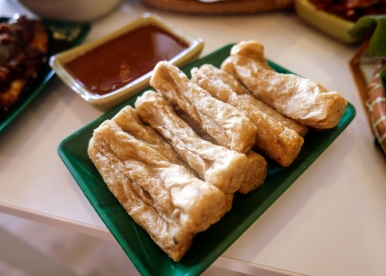
The outlet, converted from a Blook boutique into a café, marks Susan’s first foray into professional cooking, but she and Edana make a formidable team. Edana was once part of the service team at a Malaysian-Thai eatery in Melbourne, so her understanding of restaurant operations helped Susan adapt from cooking informally for friends to whipping up a menu for an entire establishment.
“Everyone basically said we were crazy to open a restaurant like this,” Susan remembers. “But we were determined to get it right. We made trips to Kelantan to find suppliers. And I had to learn how to work in a restaurant’s kitchen. When I cooked at home, the most I ever prepared was one whole chicken. Here, I suddenly had to cook 10 kilogrammes of chicken, and I had to use a big wok. At first, I sometimes burned my spices because I couldn’t handle a high-pressure stove.”
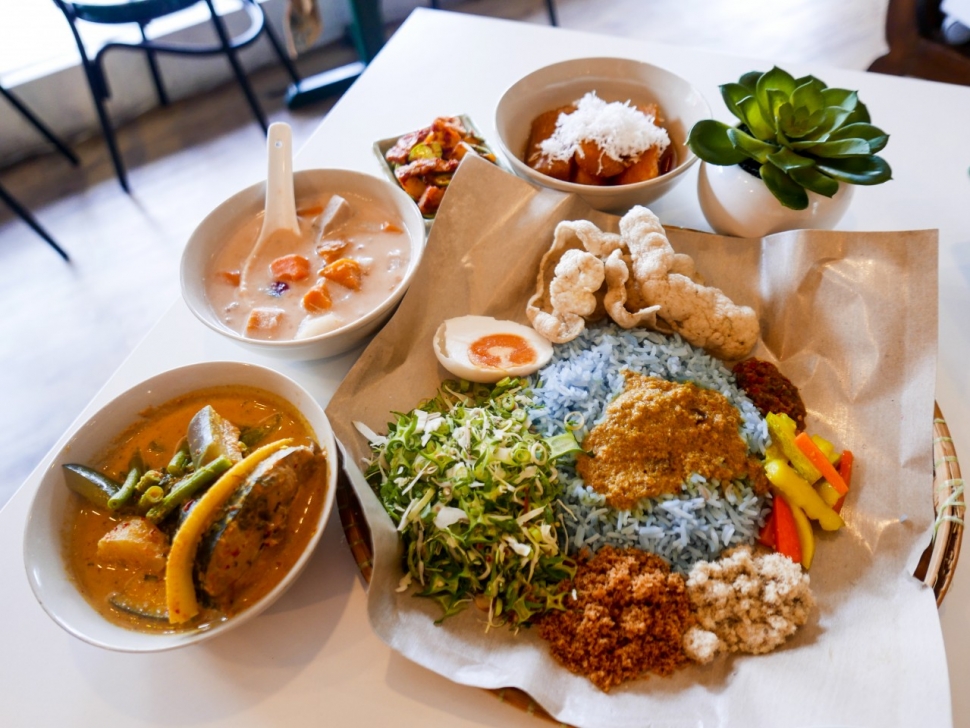
What ensures Kesom’s potency is Susan’s intimate and instinctive discernment of Kelantan’s culinary heritage. For her signature nasi kerabu, she leans on the familiar method of using the extract of butterfly pea flowers to dye the rice blue and to supply extra flavour. But unlike most makers of nasi kerabu, Susan cultivates the plant in her own garden and spends an hour daily plucking the produce, declining to purchase it elsewhere over concerns of pesticide use.
The steamed nasi kerabu, made with high-quality basmati rice, is served with a vast variety of accompaniments, including a coconut-based gravy that takes hours to cook, flavoured with shallots, turmeric and lemongrass. The rice is meant to be mixed with a fragrant ulam (raw salad) of winged beans, torch ginger and other vegetables, as well as coconut floss and fish floss, for a combination flooded with fresh, robust flavours and invigorating textures. Nearly every component takes a series of steps to create: The crispy coconut floss is sun-dried, pan-fried and pounded, while the fluffy fish floss is steamed, salted and squashed.
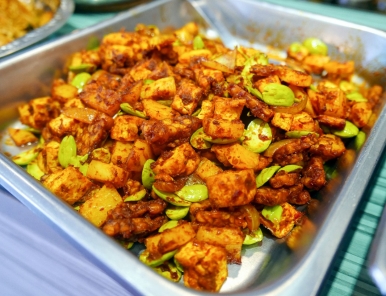
Coupled with spiced fried chicken, the substantial serving of nasi kerabu is an affordable bargain that costs barely USD3, underscoring Kesom’s commitment to placing customer satisfaction above excessive profits. Some visitors were initially reluctant to try the nasi kerabu because they feared the raw vegetables, but many found themselves enjoying it.
“Early on, we even received one order for 180 servings of nasi kerabu to take away for a gathering. But at that time, we could only prepare 20 a day!” Edana notes with a laugh, adding that patrons from Kelantan have been supportive in spreading the word about Kesom to friends.
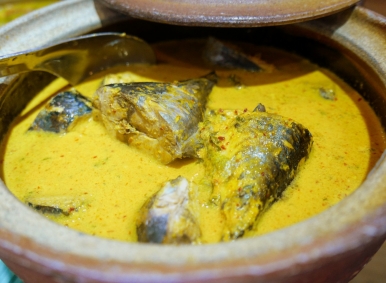
On weekends, Kesom can now sell up to 300 servings of rice dishes, including nasi dagang (reddish wild rice steamed with coconut milk and fenugreek and served with tuna curry) and khao jam (rice cooked with the juice of around 30 herbs collected from Kelantan’s jungles, served with raw beansprouts and chopped kesom leaves).
Other dishes also require meticulous thought and effort. Gulai ayam kawah, a chicken curry typically cooked in big pots for celebrations, is made with curry powder sourced from Pasir Mas, Susan’s hometown in Kelantan. The intensely aromatic powder is produced by ethnic Malay women according to household recipes handed down through multiple generations. It’s not too fiery, so even children can relish the curry.
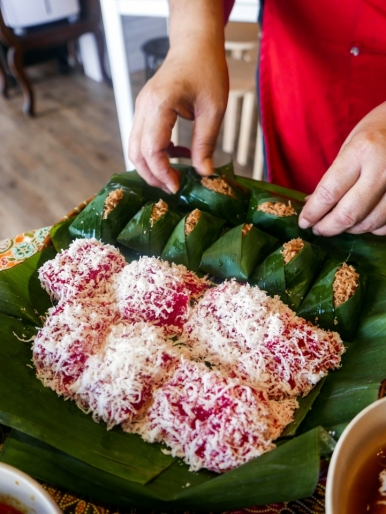
Sweet temptations include bubur cha cha (a warm, colourful dessert with yam, sweet potatoes and chewy jelly) and ubi kayu sira (boiled tapioca in palm sugar syrup), all free of artificial preservatives. Kesom’s beverages are also intended to be wholesome, with ingredients like lemongrass, pandan leaves and dried plums, shunning cheap commercial syrups.
Edana and Susan say they’ve received suggestions to open more branches, organise cooking classes and publish cookbooks. But the women insist on more modest goals, such as starting a meals delivery service. Edana continues to separately helm her fashion business, and she refuses to risk compromising Kesom’s standards with an aggressive expansion.
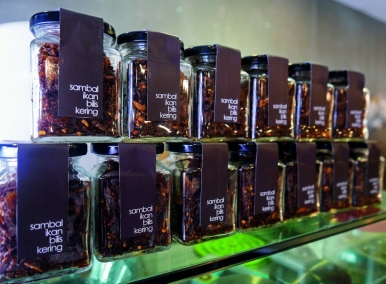
Their primary target this year is a restaurant renovation to enlarge a section where patrons can purchase packets of keropok ikan (fish crackers), jars of sambal ikan bilis (anchovy chilli paste), traditional cookies and other products. These come from small-scale, family-run suppliers as part of Kesom’s efforts to support independent community businesses.
“It’s quite a challenge,” Edana says. “We’ve been through a lot and we’re still learning. But ultimately, in a business like this, you need good recipes, and that’s what Susan is able to offer.”
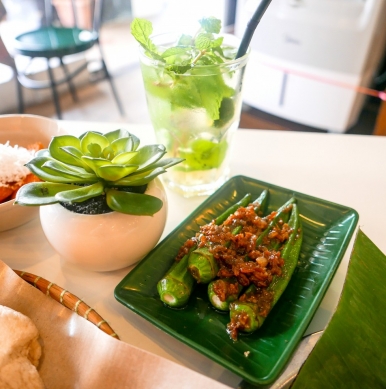
Kesom is at F-46-G, Jalan PJU 1/45, Aman Suria, Petaling Jaya, Selangor. Tel: +603-7880-7022
